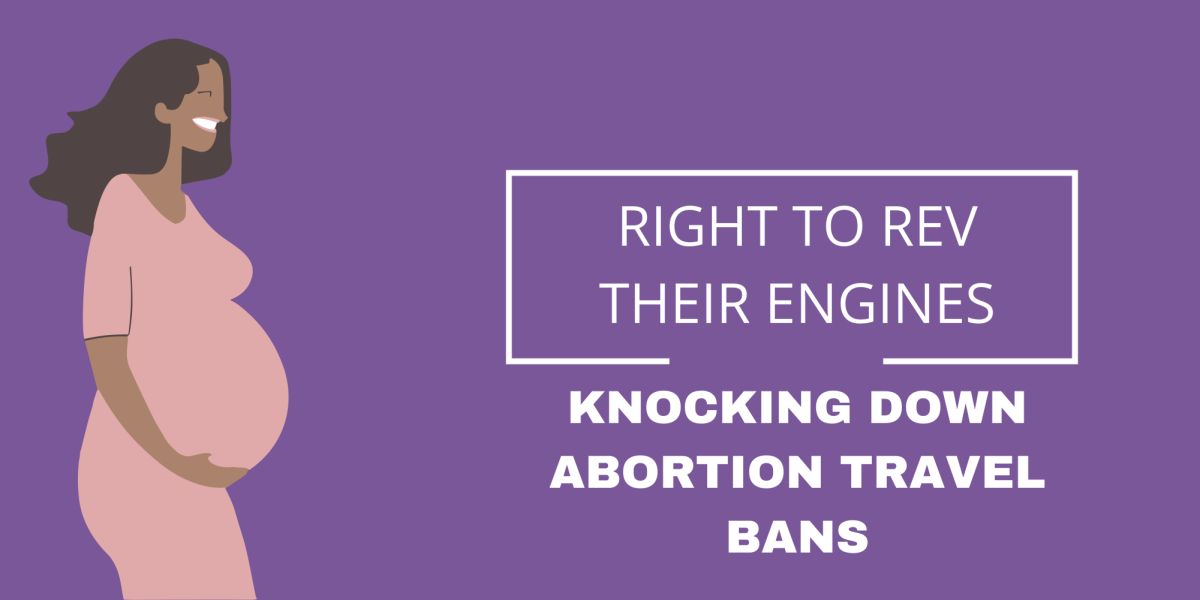June 24, 2022, the Supreme Court of the United States(SCOTUS) decided on the case of Dobbs v. Jackson Women’s Health Organization, taking away a woman’s abortion protections at the federal level. The ruling erased decades of diligence and progress made by women around the nation by handing the right to abortion back into the hands of states.
“In AP[US] Government and Politics, we had to do a project and discuss cases and mine was the Dobbs v. Jackson Women’s Health Organization case. I read both the majority and dissenting opinions and I was shocked at the majority’s reasoning. It seemed very weak and not applicable to the actual situation,” senior Holly Stallings said.
Overturning cases such as Roe v. Wade and Planned Parenthood v. Casey, the SCOTUS decision negatively impacts one group in particular: poor women who live in conservative or right-leaning states. These women and any abortion-seeking women who live in a state that heavily regulates abortions looked for ways around their states’ abortion restrictions and found a solution: to travel to receive abortions.
The Constitution’s full faith and credit clause requires that states respect other state laws, decisions and other legal proceedings—ultimately, providing each state full faith and credit. Citizens experience this daily: when a couple marries in one state, their marriage does not remain invalid simply because they travel or live in another state. With respect to abortion, conservatives may argue that if somebody resides in a state with an abortion ban or has exceeded the trimester limit to receive an abortion in her state, other states must respect the state laws in the state she resides and not provide her with an abortion.
However, this weak reasoning conflicts with another important clause that fits the situation more than the former: the privileges and immunities clause. Found in Article IV Section 2 of the Constitution, the privileges and immunities clause allows traveling citizens to obtain the rights of the state they travel to. For example, Georgia boasts a 4% sales tax on store items while Florida’s sales tax stands at 6%. When traveling to Florida, Georgia residents must pay the 6% sales tax, despite their state’s sales tax falling 2% less.
When one travels to another state, the Constitution asserts that the person receives the same immunities and falls entitled to the same laws as the residents of the state in question. This clause and its interpretation prove that pregnant women who travel to states that allow abortions should receive the procedure. All travelers receive the privileges, immunities—and yes, even consequences—the state bounds its residents to.
SCOTUS may have taken away the federal protection to an abortion, but states such as Oregon, New York, and Maryland have preserved a woman’s right to choose. Although poor women may not garner the finances to travel distances, the women who can travel should receive an abortion without their home states penalizing them. Places such as Lubbock County, Texas have expressed that women may not travel across state lines to receive abortions through their proposed abortion travel bans. Even the US Justice Department has sided with abortion-seeking women, asserting that preventing them from traveling to receive a medical procedure violates their rights and the Constitution.
“Although SCOTUS ruled against the federal right to an abortion, we learned [in AP Government and Politics] that the general population actually thinks that pro-choice is the way to go. Also, I feel like if they are going to take the right away, the least they can do is let women travel. Citizens want the right to an abortion and they should be able to get it as they want,” Stallings said.















